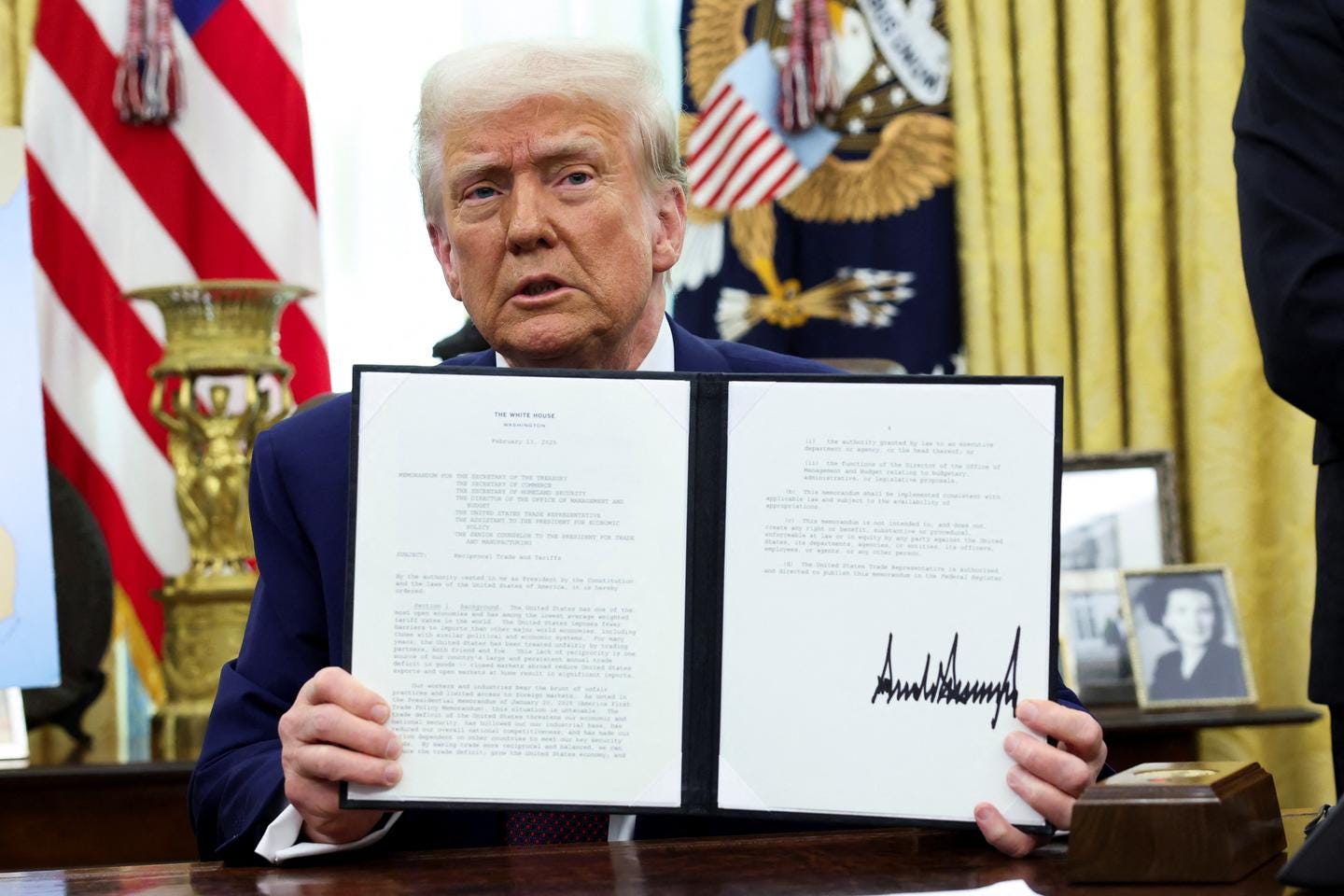The Hit List
Tariff sectors on high alert.
Headline risk around President Trump cannot be avoided. However, back and forth tariffs have isolated some key sectors in the firing line between the U.S. and Mexico/Canada/China/EU.
We wanted to focus on agriculture, autos, metals, and mining as key sectors at the heart of discussions right now. Even though specific companies within each sector are likely to be broadly impacted, we feel that each time it’s the end consumer who is most negatively affected.
Agriculture
Trump caused controversy earlier this week with the below post:
There are two parts to the United States’ agriculture trade deficit, which will likely hit a record $49bn this year.
Let’s start with imports from Mexico/Canada/EU in focus. Mexico shipped $45.4bn of agricultural products to the US in 2023, accounting for about 23% of imports and making the country the US’s largest supplier, according to the USDA. Canada and the EU sent a combined $73bn in crops to the U.S. last year.
There are two issues with levies on imports. Firstly, commodity prices. U.S. farmers need fertiliser for their crops, a good portion of which is imported. This will cost more, either causing the farmers to use less and reduce production or keeping production the same level but raising prices. Either way, it puts inflationary pressure on the end consumer—the American public.
Second, product scarcity. Part of the Mexican imports include fresh produce, which can’t sit on the shelves for that long. If tariffs make this more expensive, stores might cut back on ordering. Yet the U.S. can’t replicate all the imported fresh produce, negatively impacting consumer choice. Consumers who still want the same goods will pay more.
Now, let’s turn to the export side. From what we’ve been reading online, the consensus is that there’s no domestic market for the decent quantities of corn, soybeans, wheat, and other agricultural products currently exported. So it’s one thing to tell companies to sell within the country, but ultimately, they must sell where demand is.
On Thursday, Agriculture Secretary Brooke Rollins told Bloomberg that everything is on the table regarding providing relief for the sector. This comes following rumours of agricultural exemptions for Mexico and Canada.
A study from the CATO Institute on the impact for the sector from the last round of tariffs from 2018 noted:
“We find that the United States lost more than $15.6bn in trade with retaliatory countries. Soybeans, pork products, and coarse grains recorded the most substantial trade destruction effects. These losses were only partially offset by additional exports to nonretaliatory countries. At the same time, nonretaliatory countries were able to considerably expand their exports to retaliatory countries. The analysis shows that these countries gained $13.5bn in additional trade with retaliatory countries.”
So, when we look at Corteva and Nutrien, we feel it takes a brave investor to want to get long these names right now.
Autos
At an investor conference earlier this week, Ford CEO Jim Farley commented:




